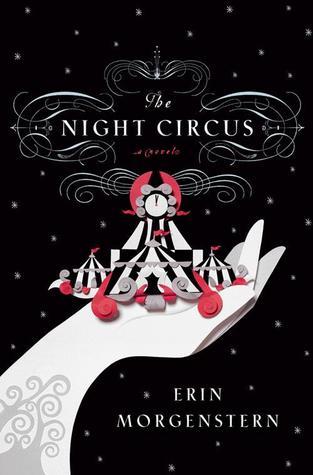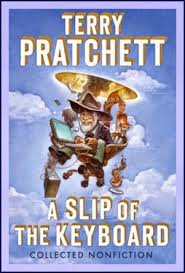 Title: Night Circus
Title: Night Circus
Author: Erin Morgenstern
Publisher: Doubleday
Hardcover: 387 pages
Source: Chicago OverDrive
Summary: (taken from Goodreads)
The circus arrives without warning. No announcements precede it, no paper notices plastered on lampposts and billboards. It is simply there, when yesterday it was not.
Within these nocturnal black-and-white striped tents awaits an utterly unique, a feast for the senses, where one can get lost in a maze of clouds, meander through a lush garden made of ice, stare in wonderment as the tattooed contortionist folds herself into a small glass box, and become deliciously tipsy from the scents of caramel and cinnamon that waft through the air.
Welcome to Le Cirque des Rêves.
Beyond the smoke and mirrors, however, a fierce competition is under way–a contest between two young illusionists, Celia and Marco, who have been trained since childhood to compete in a “game” to which they have been irrevocably bound by their mercurial masters. Unbeknownst to the players, this is a game in which only one can be left standing, and the circus is but the stage for a remarkable battle of imagination and will.
Overall Rating: 4 out of 5
I’ve been hearing about Night Circus for a while now, but there always seemed to be something else to read before I could read this (the dilemma when you have a long “to read” list). Also, whenever something becomes as popular as Night Circus, I’m more reluctant to read it, because I don’t want to be disappointed. (I’ve been burned before with Divergent, Twilight, etc., so popular books nearly always scare me when I first set out to read them.) However, this finally became available through OverDrive and I’d run out of excuses not to read it, so it was just time to get down to it. Luckily, there was no reason to worry.
The story itself is absolutely lovely and I thoroughly enjoyed every moment of reading it. It was one of those books where I couldn’t put it down, but I wanted to stretch out the experience so I could spend more time enjoying it — quite the dilemma when I’m reading a good book. It has a nice mix of realism along with fantasy, to the point where I could see it *almost* being reminiscent of magical realism, but it doesn’t quite hit that point. I think the way Morgenstern portrays the darker side of magic and the game/war between the two older magicians touches on a lot of deeply gruesome notes, and it kind of reminded me of Jonathan Strange and Mr. Norrell in regards to the dreaminess and darkness of the story itself. (But don’t worry! This novel isn’t nearly as long or as complicated. It’s much more to-the-point.)
I was worried when a romance started blooming in the book, but I think it was handled well. It was just whimsical enough to be believable, but not so overly dramatic that it annoyed me. The characters weren’t going crazy for each other and abandoning everything so that they could be together, which I really appreciated. This is the type of romance I want in young adult books. So, well done on Morgenstern for that.
The only thing that pulled me out of it is that I wasn’t quite sold on how the story is told. There were some chapters written in second person that I didn’t feel were relevant, and I’m not sure that the story was at all enhanced by the past-future switch that occasionally happens. Without those things niggling at me, this book would have been 5 stars for sure. Highly recommend. I’m trying to convince Andrew to listen to the audiobook version of this since it’s narrated by Jim Dale. Hopefully we can get a copy of that so he can listen to it soon, and then he can share his thoughts on the book!
 Title: A Slip of the Keyboard – Collected Nonfiction
Title: A Slip of the Keyboard – Collected Nonfiction